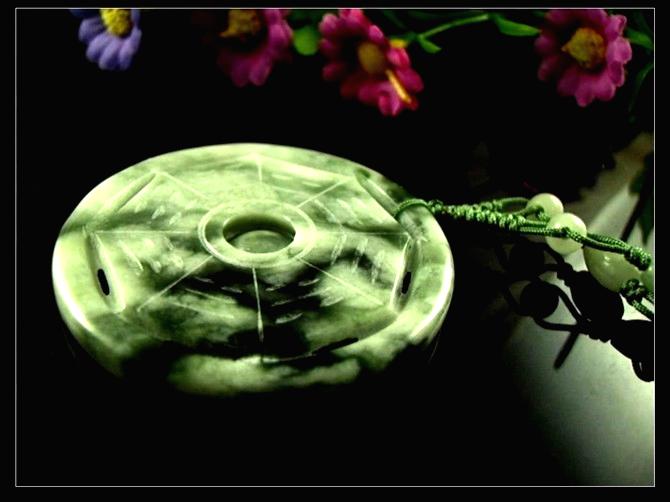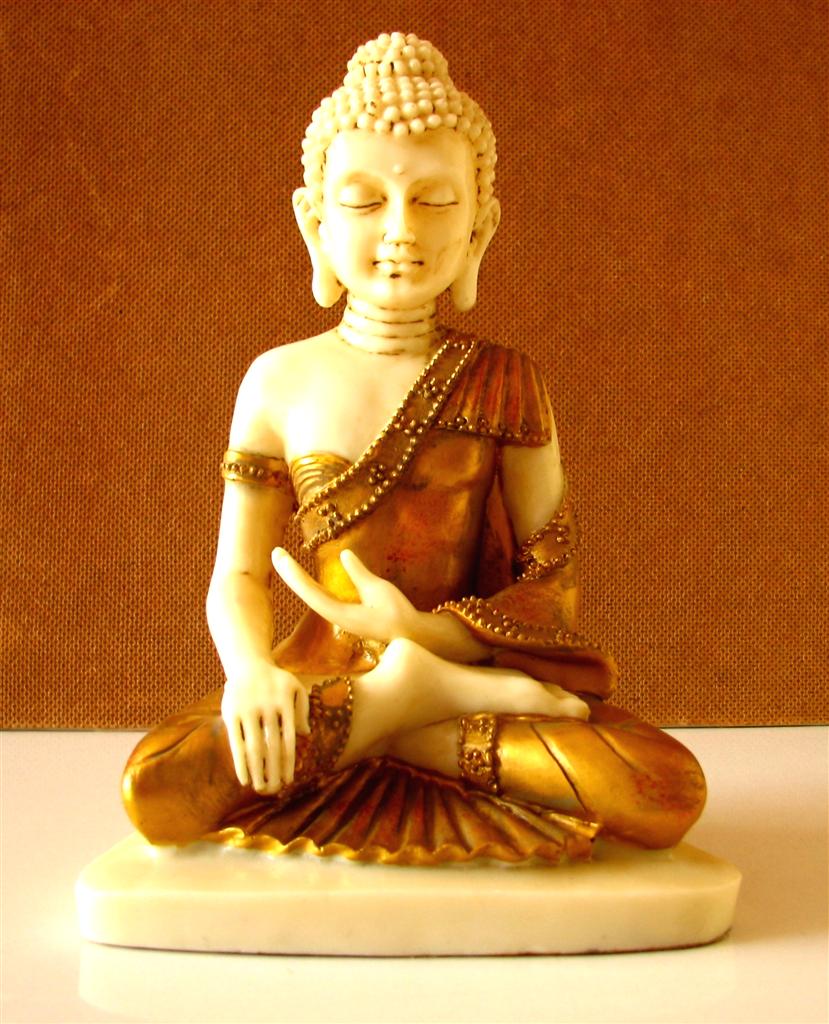| Do you like traditional Chinese medicine diet? | |
|---|---|
| Oct 29, 2009 00:36 | |
 | Really? I'm in Qingdao now and I was told the Qingdao beer tastes the best as it's fresh made with the spring from Mountain Lao. And there're lots of people drinking lots of it almost everyday. I think it's crazy to drink so much beer and make themselves a beer belly... But at least Tsingtao brewery becomes a famous must-to -see sightseeing here with its fame, which is a good thing. ^-^ |
| Oct 29, 2009 01:28 | |
 | I am told, and I believe that domestic Chinese beer contains formaldehyde while exported Chinese beer does not. I much prefer my beer natural. |
Last edited by BOBERT: Oct 29, 2009 01:29 |
| Oct 29, 2009 02:15 | |
 | Well... it seems like everything contains some unhealthy things here. But lucky, I'm still alive^-^ |
| Nov 1, 2009 16:49 | |
 | There is a misunderstanding in the west that herbal meds. is the philosophy of Chinese food therapy. Taking herbs as diet in the long run weakens you physically, disturbs the funtioning of your boy and makes you appear old and pale. Here is an good explanation of the phylosophy of Chinese Food Therapy. It all goes around the balance of 'Cool' (Yin) and "Heat" (Yang). Before you choose to eating something, you should understand your nature of body - heat nature of cool nature and your current health status. Bob, I want to point out that green tea no matter if it's hot or icy has cool (Yin) nature, it doesn't suit the people who has cool nature of body. The other example is Chinese Lichi which has very hot nature. The people who has cool nature of body eat them as nutrients while Lichi are the poison to the people with hot nature of body. |
Last edited by MARRIE: Nov 1, 2009 17:17 |
| Nov 1, 2009 16:52 | |
 | Here is the explanation of the phylosophy of Chinese food therapy. http://www.ibiblio.org/ ................................................... Introduction Chinese food therapy (Chinese: 食 疗; Pinyin: shí liáo) is a practice of healing using natural foods instead of medications. Chinese food therapy is a modality of traditional Chinese medicine, also known as Chinese Nutrition therapy. It is particularly popular among Cantonese people who enjoy slow-cooked soups. One of the most commonly known is a rice soup that goes by many names including congee and jook. This is a traditional breakfast of Asian people all over the world. Congee recipes vary infinitely, depending upon the desired health benefits as well as taste. Chinese food therapy dates back as early as 2000 BCE. However, proper documentation was only found around 500 BCE. The Yellow Emperor's Classic of Internal Medicine also known as the Niejing, which was written around 300 BCE, was most important in forming the basis of Chinese food therapy. It classified food by four food groups, five tastes and by their natures and characteristics. -------------------------------------------------------------------------------- Philosophy About Food The ideas of yin and yang are used in the sphere of food and cooking. Yang foods are believed to increase the body's heat (eg. raise the metabolism), while Yin foods are believed to decrease the body's heat (eg. lower the metabolism). As a generalization, Yang foods tend to be dense in food energy, especially energy from fat, while Yin foods tend to have high water content. The Chinese ideal is to eat both types of food to keep the body in balance. A person eating too much Yang food might suffer from acne and bad breath while a person lacking Yang food might be lethargic or anemic. As a separate categorization, some foods are considered to be especially restorative/healing to the body. |
| Nov 1, 2009 16:54 | |
 | Cantonese Classification of Food Cantonese people pay much attention to the body's reaction to food. Food items are classified accordingly, and diet is adjusted based on the body's conditions. In effect, many Cantonese people practice food therapy in day to day situations. The following is a list of common food classifications: Cantonese name rough translation related symptoms/effects examples cures 燥火 dry fire (yang) causes dryness of skin, chapped lips, nose bleed etc. chili pepper, deep fried food, dried meat, lychee. any yin or cooling food 濕熱 wet heat (yang) causes mouth sore, urinary burning etc. probably due to the acidity or alkalinity. mango, pineapple, cherry. chrysanthemum, sugar cane (竹蔗), Imperata arundinacea (茅根), Prunella vulgaris L. (夏枯草) 寒涼 yin cause dizziness, weakness, pale or green face (low oxygen level in blood) etc. watermelon, cantelope, honeydew and certain kinds of melon-type fruits or vegetables, green tea. any boosting or dry fire food 滯 blocking cause indigestion, stomach gas etc. all fibrous food, e.g. yam, chestnuts haw (fruit 山楂), malt (麥芽) 毒 poisoning cause pus or swelling in wound, outbreak of acnes, hemorrhoid etc. duck, goose, bamboo shoot, all shellfish abstinence at outbreak 油膩 greasy cause gastric upset, runny stool, outbreak of acnes etc. all greasy food, e.g. bacon etc. abstinence at outbreak 清涼 cooling mild yin type that counteract the dry fire type. Also listed as yin when overused. beer, lettuce, sugar cane (竹蔗), Imperata arundinacea (茅根), American ginseng. not needed if not overused 滋潤 nourishing moisturizing, soothing apple, pear, fig, winter melon, longan, 淮山, lotus seed, lily bulb etc. not needed 補血益氣 boosting replenishing blood and Qi. Also listed as dry fire when overused. Mutton, snake, wild games, beef, red dates (紅棗). not needed if not overused 行血活氣 vigorating circulating blood and Qi. red wine, Korean ginseng. not needed 健脾, 開胃, 生津, 養心, 強筋, 強骨 etc. generating, strengthening improves various internal functions various |
| Nov 1, 2009 16:55 | |
 | Common Food Therapy Recipes Bird nest (燕窩) Oral secretion of swiftlets, collected from the binding material of their nests. Alleged effects: promote beautiful skin for women; "strengthen the spleen and open up the stomach" (健脾開胃 meaning improve appetite.) Vegetables and fruits are believed to nullify the effect of bird nest if taken within the same day. The dried material is soaked in water to rehydrate. The soaked bird nest is cleaned by hand to remove other nest building debris such as grass and feathers. The cleaned and crumbled bird nest is double steamed with rock sugar as a dessert or with a small amount of pork as a soup. Korean or Chinese Ginseng (高麗參) Root of a plant that has the Yang properties. Alleged effects: promote circulation, increase blood supply, revitalize and aid recovery from weakness after illness. The ginseng root is double steamed with chicken meat as a soup. |
| Nov 1, 2009 16:56 | |
 | American Ginseng (花旗參) Root of a plant similar to Korean ginseng, but it has the Yin properties. Alleged effects: cleansing of excessive Yang in the body, aphrodisiac. The ginseng is sliced, a few slices are soaked in hot water to make a tea. Most American ginseng is produced in the US state of Wisconsin. A Cantonese Cough Remedy Dried duck gizzards, watercress, apricot kernels (南北杏陳腎西洋菜湯): Alleged effects: relieve both Yin (resulted from cold) or Yang (resulted from dryness) type of coughing. Watercress (西洋菜) is for removing excessive yang in the body. The sweet apricot kernels (南杏仁) and bitter apricot kernels (北杏仁) target the lungs. The dried duck gizzards (乾鴨腎) are used to balance the Yin Yang of the recipe. Watercress is available in most supermarkets while the rest of the ingredients can be found in most Chinese herb stores. The ingredients are slow cooked for couple of hours into a soup, a small piece of pork is optional for flavor. Do not use beef or chicken in this recipe because they nullify the effects of the watercress. |
| Nov 1, 2009 17:05 | |
 | I must have eaten far too many herbs MARRIE. I am already "old and pale". Maybe my body is neither 'Cool' (Yin) or "Heat" (Yang). I think I must have a huó body because I like my píjiǔ hánlěng. |
| Nov 1, 2009 17:20 | |
 | Bob, Beer is mild one which suits everybody. One can or two of beer do make your blood go faster. |
Post a Reply to: Do you like traditional Chinese medicine diet?







 Copyright © 1998-2026 All rights reserved.
Copyright © 1998-2026 All rights reserved.